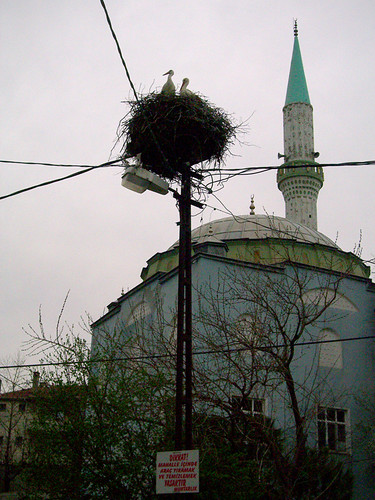"Pourquoi est-ce poisson si triste?"
"Parce qu'il comprend qu'il va être attrapé."

When I asked the artist of this lovely yet very unhappy-looking fish why it was so sad, he ever so seriously looked me in the eye, bowed his head and said, "Because he understands that he will be caught."
I've been spending the past week surrounded by trilingual children between the ages of four and eight, in what is supposed to be a drawing workshop. It has been a fascinating experience, to say the least— the imagination contained in those little heads is inspiring and often hilarious. I've met an energetic young lady who is the Queen of Egypt— but a cat, and a young man with bright blue eyes who told me that when we die, we have to stay here if we can't get into the sky. I've also met his older brother who can climb up to level four, several princesses, a part-time fish, and a pirate.

This was a gift from a darling big girl (because five is
not little) who loves turtles and sweeping. The green coming out of the turtle's shell is music that the turtle listens to inside her shell— she wiggles to the music, but absolutely does
not dance to it.
This pigeon is happy because he has a fish to eat.

Where does the imagination go?
Does the journey into adulthood inevitably end in amnesia?
I am reminded of one of my most favourite books,
Le Petit Prince, as I watch these children run, hop and crawl about, unwilling to sit down and abide by rules their heads cannot be wrapped around. I watch them wide-eyed, as they whisper profoundly into each other's ears, paper crowns on their heads, hiding behind forts they've constructed out of pillows. I feel suddenly, without wings— though I still remember the sensation of flight.
"Les grandes personnes ne comprennent jamais rien toutes seules, et c'est fatigant, pour les enfants, de toujours et toujours leur donner des explications." —Antoine de Saint Exupéry,
Le Petit Prince






